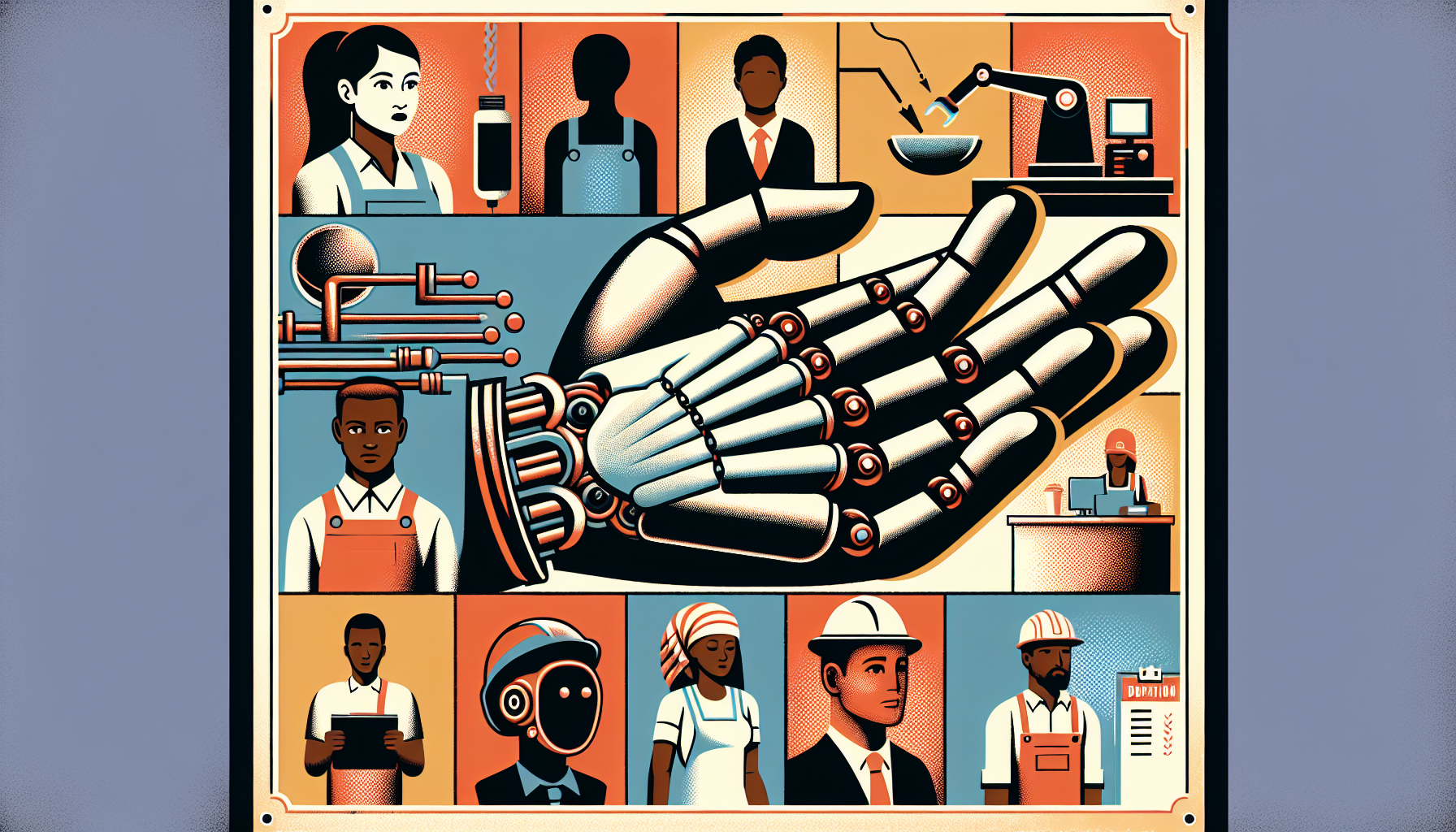In the rapidly evolving landscape of technological advancements, job displacement concerns have emerged as a prominent topic of conversation. As innovation and efficiency continue to shape industries, new horizons of possibilities unfold, driving economic growth and job creation. However, amidst this exciting progress, a growing need arises to address the challenges that accompany these advancements. Enhanced personalization, ethical and privacy issues, and the lack of emotional intelligence in artificial intelligence pose significant concerns for individuals and society as a whole. With fears of uncontrollable AI and the potential displacement of human jobs, the development of ethical AI and a collaborative approach to continuous learning become imperative in navigating this ever-changing landscape. Let’s explore the ways in which we can address these job displacement concerns and shape a future that benefits all.
Addressing Job Displacement Concerns
As technology continues to advance at an unprecedented rate, job displacement concerns have become increasingly prevalent. People are worried about losing their jobs to automation and artificial intelligence (AI) systems. However, it is important to acknowledge that while automation may indeed replace certain job roles, it also presents opportunities for new job creation and economic growth.
Ethical and Privacy Issues
One of the primary concerns surrounding the rise of automation and AI is the ethical and privacy issues that may arise. With the implementation of AI systems, there is a need for robust ethical frameworks to ensure that these technologies are used responsibly and in a manner that respects individuals’ rights to privacy. As AI becomes more integrated into various aspects of our society, it is crucial to address the potential ethical implications and put safeguards in place to protect against abuse and violations of privacy.
Lack of Emotional Intelligence
Another concern is the lack of emotional intelligence in AI systems. Emotional intelligence refers to the ability to recognize, understand, and respond to human emotions. While AI has made significant advances in processing data and performing tasks, it still lacks the ability to truly understand and empathize with human emotions. This becomes particularly important in fields such as healthcare and customer service, where human interaction and emotional support are crucial. To address this concern, efforts should be made to develop AI systems that can better understand and respond to human emotions, ensuring that they can complement human interactions rather than replace them entirely.
Fear of Uncontrollable AI
The fear of uncontrollable AI is another common concern. Science fiction movies often portray AI as becoming self-aware and taking over the world, a concept known as “the singularity.” While these depictions may seem far-fetched, it is essential to consider the potential risks associated with AI. To alleviate these fears, it is crucial to prioritize the development of ethical AI. By implementing guidelines and regulations, we can ensure that AI systems remain subject to human control and are programmed to act in the best interest of society.
Ethical AI Development
Ethical AI development should be a top priority. It involves developing AI systems that are designed to uphold core ethical values such as fairness, transparency, and accountability. This requires collaboration between AI developers, ethicists, policymakers, and other stakeholders. By incorporating ethical considerations into the design and implementation of AI, we can ensure that these technologies are aligned with human values and serve the best interests of society as a whole.
Continuous Learning
Job displacement concerns can be mitigated through continuous learning and upskilling. As certain job roles become obsolete, individuals should be encouraged and enabled to acquire new skills that are in demand. Lifelong learning programs and initiatives can help individuals adapt to the changing job market and take advantage of emerging opportunities. By equipping individuals with the necessary skills, we can ensure that they remain employable and resilient in the face of technological advancements.
Collaborative Approach
Addressing job displacement concerns requires a collaborative approach. Governments, businesses, educational institutions, and individuals all have a role to play in preparing for the future of work. Governments should create policies that support the development of AI while also protecting workers and ensuring a fair and just transition. Businesses should invest in the upskilling and reskilling of their employees, recognizing that their workforce is their most valuable asset. Educational institutions should adapt their curricula to equip students with the skills needed for the jobs of the future. Finally, individuals should take responsibility for their own career development and embrace lifelong learning.
In conclusion, while job displacement concerns are valid, it is important to approach this issue with optimism and a proactive mindset. By addressing ethical and privacy issues, developing AI systems with emotional intelligence, ensuring control over AI, prioritizing ethical AI development, promoting continuous learning, and adopting a collaborative approach, we can navigate the challenges of job displacement and harness the potential of automation and AI to create a better future for all.


